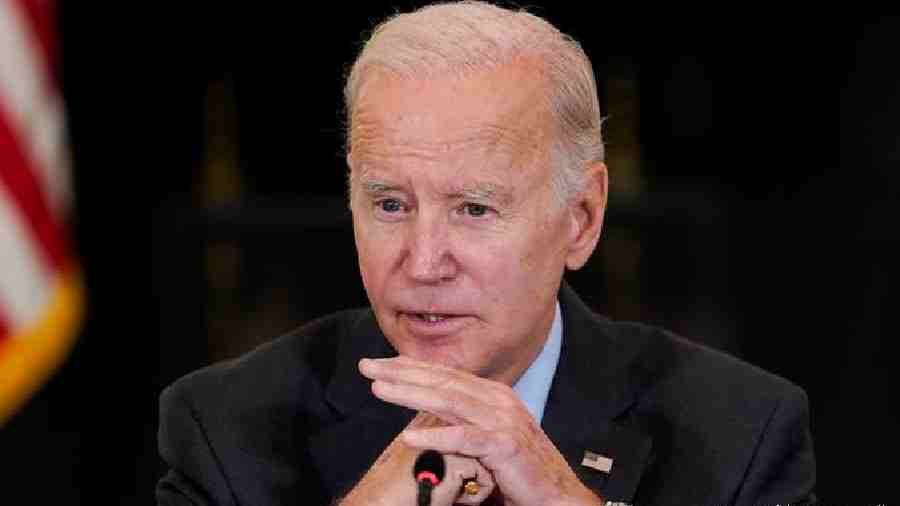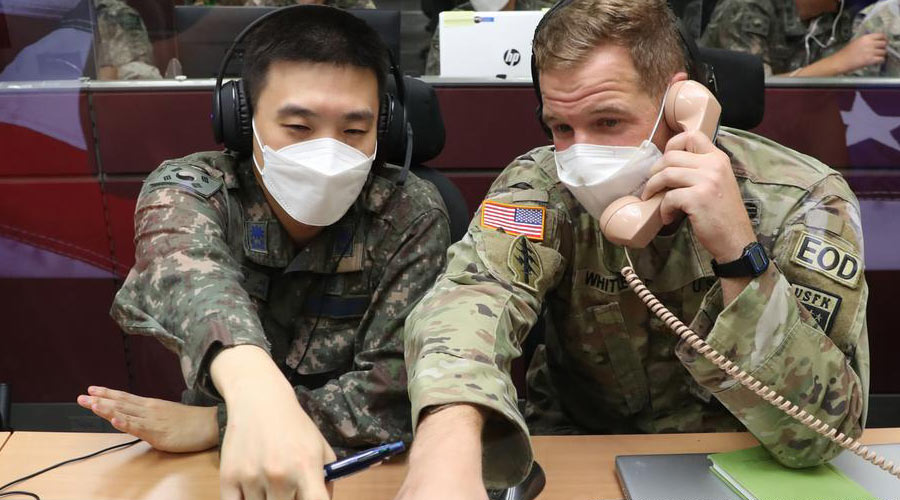South Korea and the United States are discussing planning and implementation of U.S. nuclear operations to counter North Korea, Seoul's presidential office said on Tuesday, although U.S. President Joe Biden said there would be no joint nuclear exercises.
The statement came shortly after Biden said the United States was not discussing joint nuclear exercises with South Korea, seeming to contradict earlier remarks by South Korean President Yoon Suk-yeol in an interview with a local newspaper.
Yoon's press secretary, Kim Eun-hye, said Biden“had no choice but to say 'No'” because he was simply asked if the two countries were discussing joint nuclear exercises, which can only be held between nuclear weapons states.
"In order to respond to the North Korean nuclear weapons, the two countries are discussing ways to share information on the operation of U.S.-owned nuclear assets, and joint planning and execution of them accordingly,” Kim said in a statement.
A senior U.S. administration official reiterated Biden's comment, saying that joint nuclear exercises with Seoul would be ”extremely difficult” because South Korea is not a nuclear power, but that the allies are looking at enhanced information sharing, joint contingency planning and an eventual tabletop exercise.
Both presidents asked their teams, after a meeting in Cambodia in November, to explore ways to address North Korea's recent actions and statements, which have caused“increasing concern,” the official said.
"This is going to be done through a variety of ways, including as President Yoon said, through enhanced information sharing, joint planning and expanding the range of contingencies that we plan for, as well as training, and with the idea eventually leading up to a tabletop exercise,” the official told Reuters.
The timing of the planned tabletop exercises has not been finalised, but they would take place“in the not-too-distant future” and cover scenarios beyond nuclear situations, the official said.
"The idea is to also try and make sure that we're able to fully think through the range of possibilities based on the DPRK capabilities which they've demonstrated, as well as their statements,” the official added, using North Korea's official name, the Democratic People's Republic of Korea.
A National Security Council spokesperson said in a statement that the United States is committed to providing extended deterrence, and that the allies are working on“an effective coordinated response to a range of scenarios, including nuclear use by North Korea.” Yoon has pledged to strengthen American extended deterrence - the U.S. military capability, especially its nuclear forces, to deter attacks on its allies - since taking office in May, in the face of evolving North Korean threats.
Pyongyang defined South Korea as "undoubted enemy” and vowed to beef up its nuclear arsenal this year, after firing a record number of missiles in 2022 and fuelling tension by sending drones into the South in December.
Yoon said in the interview that joint nuclear planning and exercises would help clear doubts about the extended deterrence, with its existing concept“falling short of convincing” South Koreans.
'The U.S. countermeasures have not kept up with the North's advancing nuclear programmes, and the extended deterrence strategy is almost no different from when their nuclear capability was insignificant and weaker,” said Go Myong-hyun, a research fellow at the Asan Institute for Policy Studies in Seoul.
But Kim Dong-yup, a professor at Kyungnam University, said the comment from Biden, who has sole authority to authorise the use of U.S. nuclear weapons, suggests an American reluctance to share nuclear operations, given their sensitivity and security concerns.
"Given growing voices for tactical nuclear weapons, Washington could try to give reassurances and send more nuclear assets when we want, but they're unlikely to fully materialise President Yoon's push for greater extended deterrence,” Kim said.












